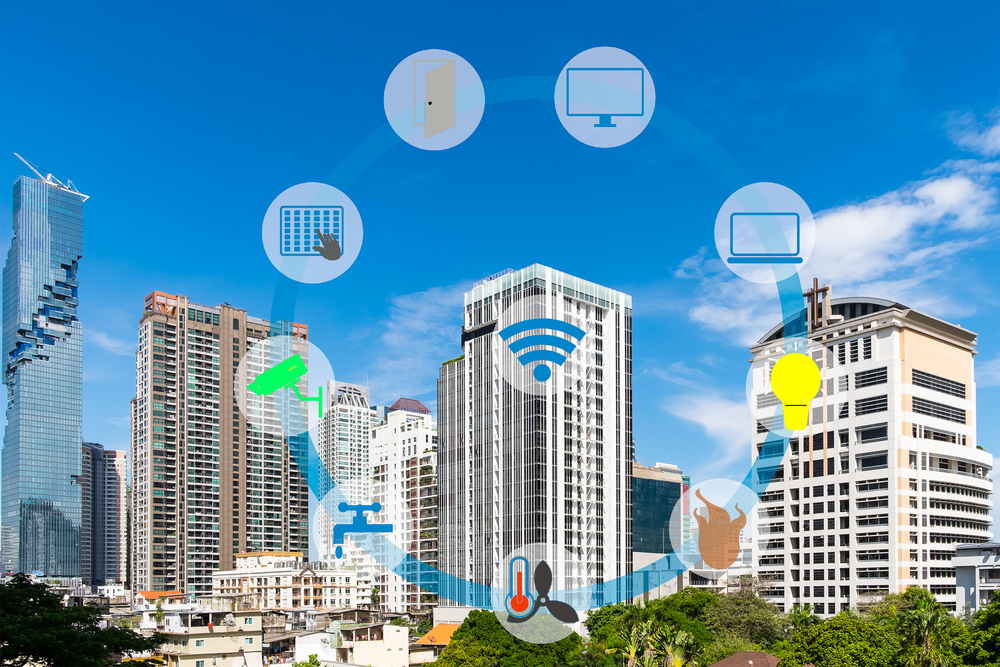Smart Building Facility Management: 4 services for 4.0 buildings
The relationship between Facility Management and Smart Building is evident for everyone: since Facility Management encompasses everything related to the management of buildings, Facility Managers have the opportunity to optimise their work thanks to the use of modern digital technologies, which represent the very heart of Smart Buildings and Building 4.0.
According to the definition of the Energy & Strategy Group of the Politecnico di Milano, the Smart Building represents in fact, “a building whose systems are managed in an intelligent and automated manner, through a supervision and control infrastructure, to optimise energy consumption, comfort and the safety of the occupants, guaranteeing integration with the electrical system”.
In short, within a Smart Building, all the main systems (from energy to telecommunications to security) operate thanks to digital platforms and electronic sensors. This intelligent automation enables a series of value-added services for occupants, often integrated with each other and manageable via software by facility and energy managers. But what are the main services we are referring to?
What is Building Facilities Management?
Building Facilities Management refers to a set of tools and services that support safety, sustainability and functionality of a building. It is a complex discipline that ensures the proper functioning of a facility building throughout its entire life cycle through both routine and extraordinary operations.
These operations are essential to ensure that the building always meets the needs and functions for which it was constructed. Thanks to the role of the Facility Manager, Building Facilities Management ensures that buildings, overall, are:
- Efficient
- Safe
- Sustainable
- Welcoming
1 – Facility Management and Smart Building: the buzzword is connectivity
Widespread, wireless and broadband connectivity is probably the service that most distinguishes Smart Buildings. In fact, it is essential to rely on this kind of networking, with simple, fast, but at the same time secure access to the Internet, so that building occupants and guests can benefit from working applications, but also to benefit from advanced video surveillance and various building automation solutions.
2 – Monitoring consumption
Energy efficiency is closely linked to Smart Buildings and Building 4.0: since a large share of the national energy demand is consumed inside buildings, Smart Buildings must be equipped with real-time energy monitoring applications, capable of recording energy consumption in real time and providing information on how energy is used, whether for lighting or heating/air conditioning.
The exact knowledge of energy consumption is in fact the indispensable precondition for intervening on inefficiencies. Modern energy monitoring devices, among other things, are able to detect anomalies in the operation of different devices and to report them via alerts to the energy management system.
Moreover, increasingly often, monitoring platforms can implement appropriate demand and response actions automatically as certain conditions and parameters change. Similar logics are also followed for monitoring other environmental parameters (emissions, humidity, etc.).
3 – Security for Smart Buildings Facility Management
4.0 buildings are inherently more secure than traditional ones: the appropriate implementation of IoT (Internet of Things) technology can enable the adoption of authentication solutions for access regulation, useful even in times of pandemic.
Moreover, wireless video surveillance further enhances security: these systems, untethered from traditional wiring, are designed to operate 24/7 without the need for constant human intervention.
4 – Intelligent maintenance
The maintenance costs of a medium-sized building can be considerable if managed manually. In particular, unplanned maintenance teams interventions on malfunctioning systems can be costly, as well as causing inconvenience of various kinds to the building’s occupants. Intelligent buildings, on the other hand, can rely on predictive maintenance, i.e. intervening before faults occur, thereby extending the life of the systems and cutting costs.
Sensors are able to detect the performance of the systems and activate maintenance procedures before a malfunction warning is triggered, thus intervening in time.
 English
English

